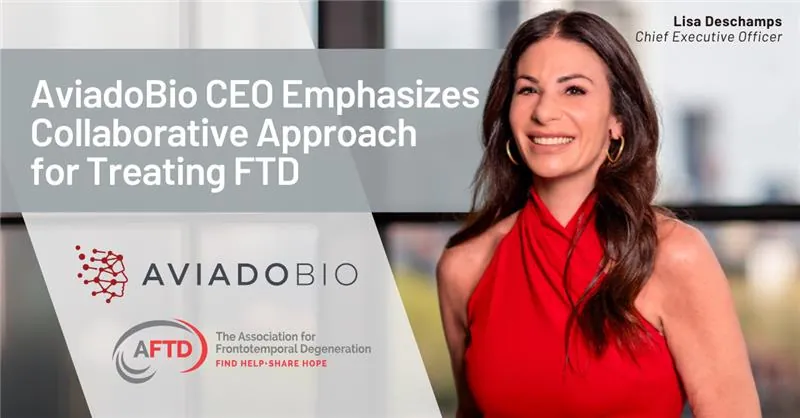
AviadoBio's CEO Highlights Innovative Strategy to Combat Frontotemporal Dementia
2024-12-09
Author: Wei
A New Era for FTD Treatment
AviadoBio is committed to pioneering transformative gene therapies for neurological disorders, starting with FTD and amyotrophic lateral sclerosis (ALS). Their ASPIRE-FTD trial targets a specific genetic variant linked to FTD, known to impair the body's production of the crucial protein progranulin. Low levels of progranulin are associated with harmful protein buildup in the brain, worsening overall cognitive health.
Utilizing cutting-edge adeno-associated virus (AAV) technology, the administration of AVB-101 is a game changer. It involves a one-time, targeted MRI-guided injection directly into the brain, sidestepping the blood-brain barrier. This method minimizes systemic exposure and maximizes the potency of the treatment when it comes to restoring healthy progranulin levels and potentially halting disease progression.
Tackling FTD: Key Challenges and Urgent Needs
Deschamps emphasized a few critical areas that need urgent attention for those affected by FTD and their families. The first is raising awareness regarding the disease—many clinicians may misdiagnose FTD as Alzheimer's, leading to a lack of appropriate support and treatment. Furthermore, a pressing need exists for better diagnostic tools and educational resources to equip healthcare providers and families alike.
"Education is crucial," Deschamps stated. "By enhancing awareness, we can ensure that individuals are correctly diagnosed and receive the support they require, particularly given the varied nature of FTD's presentation."
Moreover, developing therapeutic interventions is a priority. While AviadoBio's focus initially rests on genetic forms of FTD, the company recognizes the broader need for treatment options to accommodate sporadic cases, which have historically received less attention.
Empowering the FTD Community
AviadoBio's vision extends beyond merely introducing therapies; they aim to empower the FTD community through education and resources. "We envision a future where FTD treatment mirrors other previously treatment-resistant conditions, like multiple sclerosis," Deschamps remarked. "By working closely with advocacy groups and stakeholders, we can create a collective impact that promotes research, improved diagnostics, and therapeutic interventions."
Recent conferences, such as the International Society for FTD gathering in Amsterdam, underscore a growing energy and urgency in the scientific community. As new discoveries abate, stakeholders are reminded that meaningful, transformative treatments are within reach.
A Call for Action
Deschamps addressed the critical intersection of genetic testing, access to healthcare, and long-term care coverage—the complexities of navigating these areas deter many individuals from seeking crucial information about their health. She appealed for action to create an environment where understanding one's genetic risks for FTD does not lead to discrimination in healthcare settings.
Ultimately, the path forward requires collaboration between the industry, advocacy organizations, and policymakers to enhance education and ensure that resources are available for families facing this daunting disease.
As AviadoBio continues its innovative research and trial phases, there is a palpable excitement about the potential breakthroughs that may soon emerge from their efforts. The hope is that through combined efforts, FTD can transition from a condition of despair to one with viable treatment options and support for all affected.

 Brasil (PT)
Brasil (PT)
 Canada (EN)
Canada (EN)
 Chile (ES)
Chile (ES)
 España (ES)
España (ES)
 France (FR)
France (FR)
 Hong Kong (EN)
Hong Kong (EN)
 Italia (IT)
Italia (IT)
 日本 (JA)
日本 (JA)
 Magyarország (HU)
Magyarország (HU)
 Norge (NO)
Norge (NO)
 Polska (PL)
Polska (PL)
 Schweiz (DE)
Schweiz (DE)
 Singapore (EN)
Singapore (EN)
 Sverige (SV)
Sverige (SV)
 Suomi (FI)
Suomi (FI)
 Türkiye (TR)
Türkiye (TR)